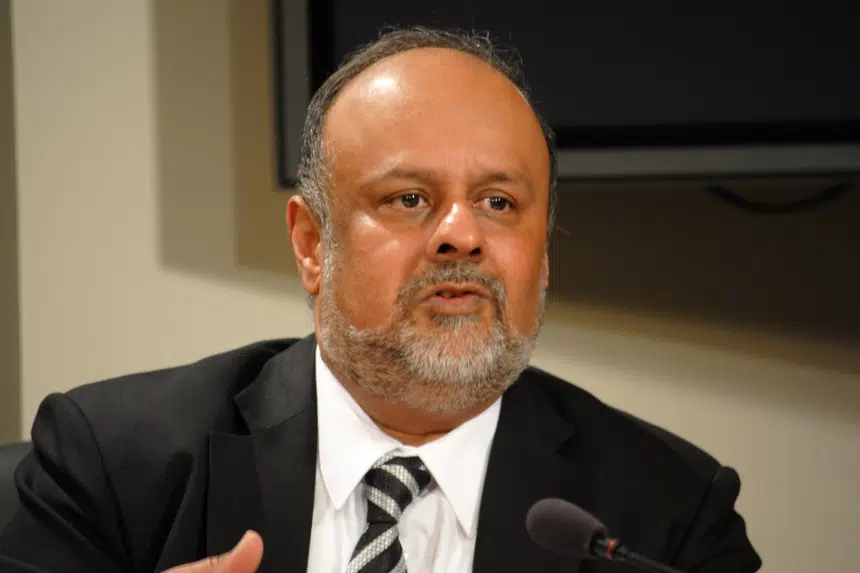Dr. Saqib Shahab says details on where the Omicron variant was found in Saskatchewan will not be shared.
In this case, when the situation involves four people who are members of one household, the information cannot be given out, the province’s chief medical health officer said during a conference call Thursday.
Shahab said the initial detections have specifically come from people who recently returned to the province after visiting one of the 10 countries in southern Africa that have been connected with the Omicron variant.
“We really have to be careful. These were people who did nothing wrong,” Shahab said.
He explained the people returning to Canada from those countries had travelled for essential reasons, were new to Canada or had gone to visit family after a two-year separation. Some of those new to the province are working in hard-to-recruit positions.
Most of those who travelled were adults who were vaccinated, Shahab said.
In some cases, travel advisories changed quickly while they were abroad and returning passengers were unaware they would need to quarantine and get tested for the COVID-19 variant.
“I think we need to recognize and we’ve had great co-operation from people who have just travelled to a new continent, started new lives, who are now faced with these additional burdens,” Shahab said, adding those new to the province need extra support. “I think we just need to respect that.”
Data on variants, including in which regions they are located, is regularly shared with the public on Saskatchewan’s COVID dashboard.
Cases of the Omicron variant have been detected in every Canadian province so far, Shahab said, for a total of 60 cases. Saskatchewan’s total remains at four.
The cases in Canada have been across all age ranges, in those who are vaccinated with Canadian- or overseas-approved vaccines, in some who are unvaccinated and in some too young to be vaccinated.
In all of the cases, symptoms of the illness have been mild, Shahab said. There haven’t been any hospitalizations yet among individuals who have been determined to have the Omicron strain.
Shahab said the province will be looking closely to the United Kingdom, which is seeing a rapid increase in cases, because it resembles Saskatchewan’s vaccine uptake and surveillance. Transmissibility, severity and protection by way of the vaccine will be monitored, he said.
The chief medical health officer also noted countries in Africa that have been flagged for the variant demonstrated excellent transparency and haste in disclosing the development to the World Health Organization.
“This is (a) great hardship for those countries and those travelling from those countries and we just need to support them during this time,” he said.
Shahab is confident the province will be able to detect cases of the Omicron variant as they emerge.







